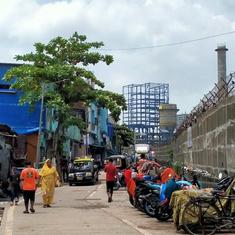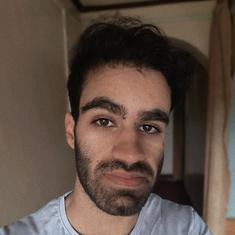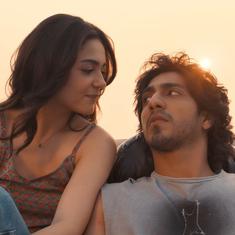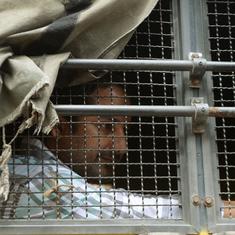The minor was tried by the Juvenile Justice Board and given the maximum possible sentence: three years in a reform home. But the parents of the victim demanded the juvenile offender -- one of five attackers -- should be tried by a criminal court.
The juvenile was 17 when he participated in the attack. The victim later died from the injuries she sustained during the rape.
The ministry of women and child development told the Supreme Court that it would be legally impermissible to put him on trial again.
The court was hearing a petition by the victim's parents challenging the constitutional validity of the Juvenile Justice Act, which sets the age of majority at 18. It was also hearing a plea by BJP leader Subramaniam Swamy, who wants the authorities to do away with the age limit of 18.
Swamy contended that the United Nations Convention for the Rights of the Child and the Beijing Rules, both of which India is signatory to, state that the age of criminal responsibility should be set bearing in mind the "mental and intellectual maturity" of the offender.
But the Centre maintains that the age of majority cannot be lower than 18. This is entirely in keeping with both international conventions on juvenile offenders and with scientific evidence on child development.
On the face of it, juvenile crime in India is rising. Records show that 27,936 cases were filed against juveniles in 2012 , the highest number since 2002. The number of rapes committed by juveniles more than doubled to 1,149 in 2011 from 485 in 2002.
Still, crimes committed by minors formed only 1.2 per cent of the 2,38,7188 criminal cases registered in 2012.
Widespread outrage followed the sentence meted out to the lone juvenile offender in the 2012 gang rape case because media reports said he had been especially brutal to the victim. Many Indians seem to favour lowering the age of majority from 18 to 16.
In India, 18 is the age of consent, the minimum age for getting a driver's licence, for engaging a lawyer and the age when citizens get the right to vote.
As this chart shows, most of the world's countries set the age of majority at 18.

The age of majority in Australia, New Zealand, the United Kingdom, Ireland, Ukraine, the Republic of Poland and Scandinavian countries is 18. This legally enables citizens of these countries to vote, purchase tobacco and alcohol, get married without parental consent and sign contracts.
Ironically, however, there is little scientific evidence suggesting that a person becomes an adult at the age of 18. If anything, research shows that a person becomes a full-fledged adult only at age 25.
Neuroscientist Sandra Aamodt says 18-year-olds are halfway through brain development that starts at puberty. It is not until the age of 25 that the prefrontal cortex of the brain, which regulates decision making and impulse control, is fully formed.
Aamodt notes that childhood deprivation slows down the development of this part of the brain. This may seem to be borne out in the case of the juvenile involved in the Delhi rape. Ved Kumari, ex-chairperson of the Delhi Judicial Academy, said the boy had left home at the age of 13, calling attention to the struggles he may have faced when he was very young.
UN conventions also recognise that human development is a slow process. Though BJP leader Subramaniam Swamy Swamy invoked UN conventions to challenge the age of majority in the Juvenile Justice Act, he has confused the age of legal majority with the age of criminal majority.
The age of criminal responsibility establishes a minimum age below which children shall be presumed not to have the capacity to infringe on the criminal law.
Swamy quotes Rule 4 of the Beijing Rules, as the United Nations Standard Minimum Rules for the Administration of Juvenile Justice is commonly known. It states:
4.1 In those legal systems recognizing the concept of the age of criminal responsibility for juveniles, the beginning of that age shall not be fixed at too low an age level, bearing in mind the facts of emotional, mental and intellectual maturity.
In fact, the age of criminal majority is always lower than the age of legal majority. UN treaties recommend that the age of criminal responsibility be kept high, so that children incapable of making moral decisions are not unfairly tried in any court, juvenile or adult.
India has one of the lowest ages of criminal responsibility in the world: seven. Unicef has called for the minimum age to be 13 worldwide. It says the same age must apply regardless of the seriousness of the offense.
If, however, India believes it needs stronger measures to check the rise in serious crimes by juveniles, it could look at the practices of the US or the UK in this regard.
As lawyer Aparna Vishwanathan wrote in The Hindu in September, both countries, which are signatories of the UNCRC, have adopted a "get tough" approach towards serious juvenile crime.
In the US, minors appear before a juvenile court. If a juvenile above a certain age, usually 13 or 15, has committed a serious crime, the case is transferred to an adult court if the jury is convinced of the need to do so.
In the UK, juveniles are tried in special magistrate courts for offenders aged 10 to 18. But in the case of grave crimes, they are first tried in such courts before the case is transferred to a sessions court where they can be handed sentences applicable to adults.
Neither nation has altered its definition of juveniles or the age of majority.
Swamy has argued that it will be impossible to rehabilitate juvenile offenders involved in serious crimes. "It's ridiculous to think you can reform a person who has committed a heinous crime, who has raped and murdered a young woman in such a brutal fashion," he said last year.
However, his position runs contrary to the philosophical basis of the criminal justice system, notes Meenakshi Ganguly, the director of Human Rights Watch, South Asia. Criminal law, and especially juvenile criminal law, aims for reformation rather than retribution, she contends.
"The idea is that a convict will emerge from the correction as a better, more responsible person," she said.
The state should decide on an appropriate punishment, through which the convict goes through a correctional process that will rehabilitate him or her in society, she said.
A more stringent punishment for the minor in the Delhi gang rape case, or lowering the age of majority, is unlikely to achieve this.










